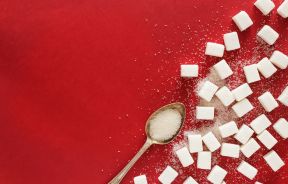The Oval Office and COVID-19: Day 4 (Updated)
UPDATE: 6:45 PM, Monday, Oct. 5, Eastern time
President Trump has left the hospital. He walked out of Walter Reed National Military Medical Center and was transported to Marine One for transport back to the White House.
No further information has been released at this time.
UPDATE: 1:30 PM, Sunday, Oct. 4, Eastern time
UPDATE: 9:30 AM, Saturday, Oct. 3, Eastern time
Sean P. Conley, DO, physician to the President, issued a statement last yesterday saying that President Trump is doing well at Walter Reed Medical Center. The President's press secretary issued a tweet last night with the statement, which said, "This evening, I am happy to report that the President is doing very well. He is not requiring any supplemental oxygen, but in consultation with specialists we have elected to initiate Remdesivir therapy. He has completed his first dose and is resting comfortably."
See related article: President Trump Receives Remdesivir, But What Is It?
UPDATE: 6:30 PM, Friday, Oct. 2, Eastern time
President Trump has been admitted to Walter Reed Medical Center. Before leaving, he sent out a Twitter video, stating that he was feeling fine, but that his doctors recommended that he be transferred to the hospital.
UPDATE: 5 PM, Friday, Oct. 2, Eastern time
News reports indicate that President Trump will be going to Walter Reed Medical Center within the next few hours. He has been experiencing a fever since this morning.
UPDATE: 2 PM, Friday, Oct. 2Eastern time
Former Vice-President Joe Biden has tested negative for COVID-19. Concerns regarding infection centered around the debate on Tuesday evening, in Cleveland. Mr Biden shared the news on Twitter: "I'm happy to report that Jill and I have tested negative for COVID. Thank you to everyone for your messages of concern. I hope this serves as a reminder: wear a mask, keep social distance, and wash your hands." His running mate, California Sen. Kamala Harris, and her husband, Doug Emhoff, also tested negative this morning.
-------
On October 1, President Donald J. Trump proclaimed the end of the pandemic was in sight. Maybe for others, but not for him.
President Trump and First Lady Melania Trump tested positive for COVID-19. The president made the announcement in a tweet just before 1 a.m. Friday.
“Tonight @Flotus and I tested positive for COVID-19,” wrote the president, who has flaunted many of his administration’s recommendations for avoiding the virus, including wearing face masks. “We will begin our quarantine and recovery process immediately. We will get through this TOGETHER!”
Shortly after the tweet, Sean P. Conley, the president’s physician, wrote in a letter to White House Press Secretary Kayleigh McEnany that Trump and his wife “are both well at this time, and they plan to remain at home within the White House during their convalescence.”
The announcement came just hours after Bloomberg News reported that Hope Hicks, a close adviser to the president who had close contact with him, had become ill with the novel coronavirus. She was part of the president’s inner circle who flew with him on Air Force One to Cleveland for Tuesday’s debate with former Vice President Joe Biden. The Associated Press reported that Hicks was quarantined on the return flight because she was feeling ill.
Biden is expected to be tested for the virus today. As of Friday, Vice President Mike Pence and his wife, Karen, tested negative for COVID.
On Wednesday, aides to the president became concerned because he seemed exhausted and out of sorts, according to Bloomberg. They initially chalked it up to his fatigue from his heavy campaign travel schedule.
The president has three major risk factors that make him susceptible to a more serious case of the virus – age, sex and weight. At 74, the president is in a higher risk pool for severe disease. According to the Centers for Disease and Control and Prevention, “People in their 60s and 70s are, in general, at higher risk for severe illness” and that “8 out of 10 COVID 19 deaths reported in the U.S. have been in adults 65 and older.”
Men are also more likely to die from the virus. Studies from around the world have found men more than twice as likely than women to die from COVID-19. A June CDC report found that in America, 57% of COVID 19 deaths have been men.
The president’s weight is yet another risk factor. At 6-foot-3, and if his reported weight of 244 pounds is accurate, Trump is borderline clinically obese. The CDC has said that obesity increases the risk for severe illness from COVID 19 and may triple the risk of hospitalization. Obesity can also affect the immune system and reduce lung capacity.
President Trump’s doctors have said that his low resting heart rate and blood pressure indicate that his heart is healthy. But he also takes rosuvastatin, a cholesterol-lowering drug, and aspirin to prevent heart attacks.
This is a developing story.
Robert Calandra is an award-winning journalist and book author who has written extensively about health and medicine. His work has appeared in People, Parent, AARP the Magazine, The National Institute of Health, WebMD, and The Philadelphia Inquirer.



























